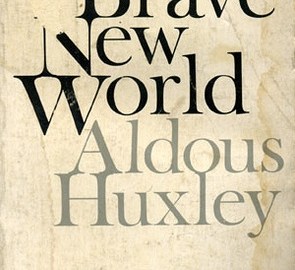Apple Takes a Page From “Brave New World”

On the night of April 23, 20XX, four Rapid Enforcement Allied Computer Team (REACT) police officers broke into the apartment of a popular technology blogger while he was out at dinner. Bursting into the apartment, the officers quickly raided the blogger’s home and confiscated computers, servers, and other electronic gadgets. There were rumors that two unidentified men from the country’s premier technology firm were also present to help the officers, who were investigating leaked information about a secret product the company was unveiling in the next six months.
The secret product in question: the next generation iPhone. The company: Apple. The year: 2010, last Friday to be precise. When an Apple engineer accidentally left the prototype of the iPhone due to be released in a few months in a bar in Redwood City, it was sold to the magazine Gizmodo for $5000. Gizmondo blogger Jason Chen then proceeded to dismantle the prototype, revealing all its exciting and gory details to its readers. The twitterverse, blogosphere, and all Apple-obsessed universes came alight with anticipation as they poured over each detail of the new iPhone: the camera in front, the ability to multitask, the additional volume controls – the excitement was almost emanating from one’s keyboard when one browsed the Web. Yet apart from a ripple of concern from journalists and intellectuals following the story of the raid at Chen’s home, everything went dark and quiet as people went back to their everyday lives (after judiciously making a mental note to buy the next release of the iPhone).
Why don’t people notice that Apple has no qualms pressuring the police to barge into the homes of journalists? Or that we are now automatically signed on with our Facebook ID to 50,000 websites, all of which have added this functionality just in the last week? No, we are too busy standing in line for hours to buy the iPad or checking if our Facebook friends like Lady Gaga as much as we do to take stock of what’s really happening behind the curtains. Shiny pretty things and easy convenience are seducing us into such a state that we don’t care about our privacy, our legal rights, or the fact that technology companies are becoming mega-corporations with too much power and too much information about us.
Jon Stewart reminded Apple of its spectacular advertisement in 1984 in which it showed the company shattering the power of Big Brother a la George Orwell’s book 1984. The departing line of the advertisement “1984 won’t be anything like 1984” because the Macintosh was going to free people of centralized information management perfectly captured the iconoclastic anti-establishment philosophy of Apple.
Ironically, Apple itself has become the establishment. Or as Stewart asked, “Is Apple becoming ‘The Man’?” But something far more disturbing than Apple’s corporate megalomania is at stake here: why are we becoming so non-plussed about it? Indeed, the book we must look to for such dystopian reference is not Orwell’s 1984 but Huxley’sBrave New World. In the Orwellian world, humans are held captive to a dictatorial central authority, while in Huxley’s book, humans don’t care – they live without questioning, they desire nothing more than what they have, they take the pleasure-inducing hallucinogen soma, and they indulge in orgy-porgy. Of course, their mindless apathy is largely due to a series of social conditioning therapies that they are subjected to as they are growing up.
“And that,” put in the Director sententiously, “that is the secret of happiness and virtue-liking what you’ve got to do. All conditioning aims at that: making people like their inescapable social destiny.” – Aldous Huxley, Brave New World
How are we being conditioned today? It’s not the result of a central authority but the onslaught of constant immersion, stimulation, entertainment, and titillation. We are becoming a nation of hyper-alert but naive and unquestioning digital vessels. We lull ourselves into thinking that the interactivity of digital media and gadgetry is making us intelligent, whereas in fact, its millions of little interactions are keeping us too busy to notice the darker big picture.
Brave new world indeed.
Ayesha and Parag Khanna explore human-technology co-evolution and its implications for society, business and politics at The Hybrid Reality Institute.





